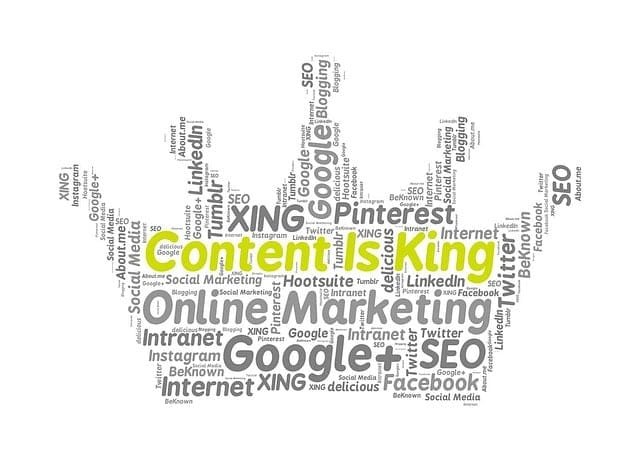In the digital age, capturing leads and nurturing them is an ever-evolving challenge. With users being more tech-savvy and expecting faster, personalized responses, businesses need to be a step ahead in their game. Enter chatbots. These AI-powered tools can be the perfect bridge between a business and its potential customers, offering immediate responses, personalization, and efficiency.
But with so many options available, which one should you choose for lead generation?
In this comprehensive guide, we’ve handpicked several chatbots that can revolutionize your lead generation strategy. Here’s everything you need to know to make an informed choice.
#1. Drift

Drift is often hailed as the new-age conversational marketing platform. Designed to help businesses drive more leads, reduce the sales cycle, and increase conversion rates, Drift seamlessly integrates with a myriad of platforms to provide a unified user experience.
Features
- Conversational Marketing: Engage visitors in real-time, qualify leads automatically, and route them to the right sales rep.
- Email Playbooks: Automate follow-ups and nurture leads even when they leave the site.
- Integration: Seamlessly integrates with tools like Slack, Marketo, and Salesforce.
- Customizable Widgets: Adjust the look and feel of your chatbot to match your brand’s aesthetic.
Pros and Cons
Pros:
- Real-time engagement which boosts conversion rates.
- Powerful integrations eliminate data silos.
- User-friendly interface suitable for non-tech savvy individuals.
Cons:
- Premium features come at a higher price point.
- Some users find the setup process a tad long.
Pricing
Drift offers a free version for individual users, but for advanced features and scalability, their premium plans start from $50/month.
USP (Unique Selling Proposition)
Drift’s standout feature is its emphasis on conversational marketing. Instead of just gathering information, it actively engages visitors, leading to a more personalized and enriched user experience.
Ideal User Base
Startups and SMEs looking for an easy-to-integrate solution and those businesses aiming to make their marketing more conversational would benefit the most from Drift.
#2. Intercom

Intercom has positioned itself as more than just a chatbot; it’s an entire customer messaging platform. From the moment a visitor lands on your page to their journey into becoming a loyal customer, Intercom aims to be with them every step of the way, ensuring streamlined communication and enhanced user experience.
Features
- Business Messenger: Personalized chats with visitors, incorporating images, GIFs, and even product tours.
- Resolution Bot: Answer common queries instantly without human intervention.
- Customizable Chat Interfaces: Branding is consistent with the overall website aesthetic.
- Segmented Messaging: Send targeted messages based on user behavior, location, and more.
Pros and Cons
Pros:
- Diverse set of tools encompassing chatbots, help desks, and product tours.
- Excellent analytics dashboard offering insights into user behavior.
- Rich API for custom integrations.
Cons:
- Can become pricey as you scale.
- Initial setup can be overwhelming due to the myriad of features.
Pricing
Intercom’s pricing is based on the modules you choose, starting from $39/month for their basic messaging package. However, costs can add up with the addition of advanced features.
USP
The sheer versatility of Intercom makes it stand out. It’s not just about chatting; it’s about creating a cohesive user journey from the first touchpoint onwards.
Ideal User Base
Intercom is perfect for mid-sized to large businesses looking for a comprehensive messaging solution. E-commerce platforms, SaaS companies, and online education platforms will particularly benefit from its suite of features.
#3. MobileMonkey

MobileMonkey is all about leveraging the power of Facebook Messenger marketing. Recognizing the vast user base of Facebook, MobileMonkey optimizes lead generation by tapping into users where they spend a significant portion of their online time.
Features
- Messenger Marketing: Directly target Facebook users through chatbots.
- OmniChat®: Manage chats across platforms, including web chat, SMS, and other messengers.
- Lead Magnets: Create engaging quizzes, surveys, and contests to gather leads.
- Drip Campaigns: Nurture leads through automated follow-ups on Messenger.
Pros and Cons
Pros:
- Great for businesses targeting Facebook’s massive audience.
- OmniChat feature allows centralized chat management.
- Cost-effective way to run ad campaigns.
Cons:
- Sole reliance on Facebook might not be ideal for all businesses.
- Some features have a learning curve for beginners.
Pricing
MobileMonkey has a free version with basic features. Premium versions, with more advanced functionalities, start from $14.25/month.
USP
Harnessing the colossal user base of Facebook Messenger for direct marketing and lead generation is MobileMonkey’s forte.
Ideal User Base
For businesses heavily reliant on Facebook for marketing, including e-commerce, event organizers, and influencers, MobileMonkey is a boon.
#4. HubSpot Chatbot Builder

HubSpot, known for its robust CRM and inbound marketing tools, brings forth its Chatbot Builder to create conversational agents that nurture and convert leads. With the advantage of seamless integration into HubSpot’s ecosystem, this chatbot builder offers a unified approach to customer engagement.
Features
- Drag-and-Drop Builder: Easily create chatbot flows without the need for coding.
- Integration with CRM: Automatically sync leads and data to HubSpot CRM.
- Personalization: Tailor conversations based on stored data, ensuring relevant interactions.
- Ticketing and Scheduling: Enable users to book appointments or raise tickets directly through the chat.
Pros and Cons
Pros:
- Deep integration with HubSpot’s platform ensures data consistency.
- User-friendly, requiring minimal technical expertise.
- Robust analytics to gauge chatbot performance.
Cons:
- Advanced features might necessitate HubSpot’s higher-tier plans.
- Less flexibility for non-HubSpot users.
Pricing
While HubSpot’s CRM is free, the Chatbot Builder’s advanced features come bundled with HubSpot’s Sales, Marketing, or Service Hubs, which start from $45/month.
USP
Seamless integration with HubSpot’s CRM platform, allowing businesses to maintain data integrity and provide a unified customer experience.
Ideal User Base
Existing HubSpot users and businesses that prioritize CRM-led chatbot interactions will find the Chatbot Builder incredibly beneficial.
#5. Tars

Tars focuses on creating high-conversion landing pages using chatbots. Instead of static forms or generic landing pages, Tars engages visitors in interactive chats, guiding them down the conversion funnel in a more engaging manner.
Features
- Landing Page Bots: Create interactive landing pages that hold visitors’ attention.
- Instant Notifications: Get alerted immediately when leads interact with the bot.
- Rich Analytics: Dive deep into bot performance metrics and optimize accordingly.
- API Integrations: Connect with tools like Google Sheets, CRMs, and more for a unified workflow.
Pros and Cons
Pros:
- Boosts conversion rates by replacing static landing pages with interactive chat experiences.
- Intuitive drag-and-drop bot builder.
- Responsive support team.
Cons:
- Pricing might be on the higher side for small businesses.
- Limited templates for specific niche industries.
Pricing
Tars offers custom pricing based on the features and integrations required by the business.
USP
Reimagining landing pages through interactive chatbots to skyrocket conversion rates.
Ideal User Base
Marketers and businesses looking to revamp their landing page strategy and boost conversion rates will find Tars immensely valuable.
#6. Collect.chat

Collect.chat is designed for businesses that want a quick and efficient way to gather information from website visitors. By replacing static forms with interactive chatbots, it ensures a more engaging user experience, leading to better lead capture and higher response rates.
Features
- Template Library: A variety of templates for different industries and use-cases.
- Logic Jumps: Create dynamic conversations based on user responses.
- Embed Anywhere: Add the bot to websites, landing pages, or even send via email.
- Third-party Integrations: Sync collected data with tools like Google Sheets, Slack, and CRMs.
Pros and Cons
Pros:
- Simple setup with no coding required.
- Extensive template library to get started quickly.
- Reasonably priced for the features offered.
Cons:
- Lacks advanced AI capabilities.
- Customizations might be limited compared to other platforms.
Pricing
Collect.chat offers a free plan with basic features. Their premium plans, which come with advanced functionalities and integrations, start at $24/month.
USP
Simple, efficient, and designed specifically for collecting data interactively, ensuring higher response rates compared to traditional forms.
Ideal User Base
Ideal for businesses, bloggers, and marketers who want a straightforward way to collect information from visitors without delving into complex bot development.
#7. ManyChat

ManyChat is primarily geared towards Facebook Messenger marketing, offering tools to engage, nurture, and convert leads directly on the platform. With its user-friendly interface and rich feature set, it’s a favorite among businesses targeting Facebook’s vast audience.
Features
- Visual Flow Builder: Design chatbot sequences with ease.
- E-commerce Integrations: Connect your online store and enable sales directly through Messenger.
- SMS & Email Marketing: Extend your marketing reach beyond just Messenger.
- Audience Segmentation: Send targeted messages based on user behaviors and preferences.
Pros and Cons
Pros:
- Extensive features tailored for Messenger marketing.
- Seamless integration with popular e-commerce platforms.
- User-friendly, making it accessible for beginners.
Cons:
- Relies heavily on Facebook, which may not suit all businesses.
- Advanced features come at a steeper price.
Pricing
ManyChat has a free version with basic Messenger features. For advanced capabilities, their Pro plans start from $10/month.
USP
A holistic Messenger marketing tool with capabilities that extend beyond chat, including SMS and email marketing.
Ideal User Base
Businesses with a primary focus on Facebook as their marketing channel, especially e-commerce platforms, will find ManyChat indispensable.
#8. Aivo

Aivo answers the call for AI-driven customer service, allowing businesses to provide instant responses 24/7. Powered by its proprietary adaptive learning technology, Aivo’s chatbots can engage in human-like interactions, making them a viable solution for businesses prioritizing customer support.
Features
- AgentBot: AI-driven chatbot trained to solve customer queries without human intervention.
- Voice: Integrate with platforms like Alexa for voice-activated customer service.
- Live: Seamlessly transition from bot to human agent when needed.
- Analytics & Insights: Comprehensive data on customer interactions and bot performance.
Pros and Cons
Pros:
- Supports multiple languages for global businesses.
- Integrates with major CRMs, making data management easier.
- Strong focus on natural language processing for better user interactions.
Cons:
- Might be overkill for businesses just looking for basic lead generation.
- Pricing can be steep for small businesses.
Pricing
Aivo employs custom pricing based on individual business needs. Companies should reach out directly for a tailored quote.
USP
Emphasizing human-like interactions, Aivo’s adaptive learning technology ensures customers feel they’re communicating with a person, not a program.
Ideal User Base
Aivo shines for businesses where customer service is paramount, especially e-commerce, telecom, and financial sectors.
#9. Landbot.io

Landbot.io is all about creating engaging conversational experiences. With a strong focus on simplicity and design, it provides businesses with an intuitive platform to convert visitors into leads through engaging chat interfaces.
Features
- Drag & Drop Builder: Create chatbot flows without any coding expertise.
- Custom Branding: Ensure your chatbot aligns with your brand aesthetics.
- WhatsApp Business Integration: Engage users on the popular messaging platform.
- Webhooks & APIs: Seamless integration with your existing tech stack.
Pros and Cons
Pros:
- Highly intuitive interface; no steep learning curve.
- Rich template library catering to various industries.
- Provides both web-based chatbots and WhatsApp bots.
Cons:
- Lacks advanced AI capabilities.
- Might be limited for businesses looking for extensive customizations.
Pricing
Landbot.io offers a free starter version. Premium versions, offering a richer set of features, start from $30/month.
USP
Simplicity meets design. Landbot.io ensures that creating and deploying chatbots is as easy as designing a presentation.
Ideal User Base
Startups, SMEs, and businesses looking for a no-fuss solution to engage website visitors will find Landbot.io extremely beneficial.
#10. Botsify

Botsify is a platform that allows businesses to design AI-powered chatbots for their websites and social media channels. With an emphasis on facilitating human-like conversations, Botsify helps automate routine tasks, engage audiences, and support customers.
Features
- Easy Integration: Deploy on platforms like Facebook Messenger, WhatsApp, and your website.
- Templates: Ready-made templates to kickstart your bot creation process.
- Human Handoff: Seamlessly transfer from bot to human support when necessary.
- Learning & Training: Continuous AI learning from conversations to improve responses.
Pros and Cons
Pros:
- Drag-and-drop interface allows for easy bot design.
- Multi-channel deployment offers broader customer reach.
- Supports multiple languages for international businesses.
Cons:
- Advanced features might need a steeper learning curve.
- Pricing can add up if you need multiple integrations.
Pricing
Botsify offers a basic free version. Premium plans, which cater to increased features and interactions, start from $50/month.
USP
Botsify’s continuous learning ensures the bot becomes smarter over time, leading to more refined and relevant interactions with users.
Ideal User Base
Businesses that want a solution that evolves with their audience’s needs – especially those in e-commerce and customer support sectors – will find Botsify apt.
#11. Chatfuel

Dominating the Facebook Messenger bot arena, Chatfuel empowers brands to build chatbots that drive sales, provide support, and engage users. With a clientele boasting big names like Adidas and MTV, its reliability and scalability are unquestionable.
Features
- No-Code Bot Building: Easily create chat flows without coding.
- Sequencer: Schedule and automate sequence messages for nurturing leads.
- Integration: Connect with tools like Shopify, WordPress, and more.
- Analytics: Track bot performance and user engagement metrics.
Pros and Cons
Pros:
- Easy to set up with a straightforward interface.
- Ability to handle large volumes of users.
- Rich set of plugins for enhanced functionality.
Cons:
- Predominantly centered around Facebook Messenger.
- Some integrations require a third-party connector.
Pricing
Chatfuel offers a free plan with basic functionalities. For businesses aiming for a broader feature set and priority support, the Pro plan starts at $15/month.
USP
A robust platform specifically designed for maximizing Messenger interactions, allowing businesses to tap into Facebook’s vast user base efficiently.
Ideal User Base
Brands aiming to exploit the potential of Facebook Messenger for marketing, sales, and support will find Chatfuel indispensable.
#12. Gupshup

Gupshup presents itself as a smart messaging platform, bridging the gap between businesses and their customers across various channels. With a commitment to seamless integration and adaptive conversations, Gupshup becomes a strong contender in the chatbot arena.
Features
- Omnichannel Presence: Engage with users across SMS, WhatsApp, Facebook, and more.
- Developer-Friendly: Rich APIs and SDKs for bot development.
- Template Library: Start with predefined templates tailored for various use-cases.
- Advanced Analytics: In-depth insights into bot performance and user interactions.
Pros and Cons
Pros:
- Ability to reach users across various platforms.
- Scalable to handle millions of messages.
- Dedicated tools for developers to customize and innovate.
Cons:
- Might be overwhelming for beginners due to its extensive feature set.
- Pricing can be on the higher end for small businesses.
Pricing
Gupshup operates on a custom pricing model, depending on the volume of messages and chosen platforms. Companies would need to get in touch for a specific quote.
USP
Gupshup emphasizes a holistic approach, allowing businesses to engage users wherever they are, whether it’s a social platform or a simple SMS.
Ideal User Base
Enterprises and businesses aiming for a wide reach across multiple platforms, especially those focusing on global audiences, will get the best out of Gupshup.
#13. Octane AI

Octane AI takes the helm when it comes to conversational marketing for e-commerce brands. Packed with features tailored to the e-commerce realm, it helps businesses boost sales, answer queries, and provide personalized shopping experiences.
Features
- Shop Quiz: Engage users with quizzes to provide tailored product suggestions.
- Messenger & SMS Marketing: Engage customers where they are most active.
- Back-in-Stock Alerts: Notify users when a product is available.
- Integrations: Seamlessly connect with platforms like Shopify and Klaviyo.
Pros and Cons
Pros:
- E-commerce-specific features for a more targeted approach.
- Increases conversion rates with personalized experiences.
- Comprehensive analytics to track ROI and sales metrics.
Cons:
- Predominantly tailored for e-commerce, making it less versatile for other industries.
- Pricing can be steep for startups or smaller e-commerce platforms.
Pricing
Octane AI operates on a tiered pricing model, starting with a basic plan at $29/month and scaling up based on features and the volume of interactions.
USP
An e-commerce-centric solution, Octane AI dives deep into the nuances of online shopping, enhancing user experience and driving sales.
Ideal User Base
E-commerce brands, ranging from budding startups to established platforms, looking for a conversational edge in their marketing strategy will find Octane AI a perfect match.
#14. Conversica

A pioneer in the realm of conversational AI, Conversica brings forth an AI-driven sales assistant that engages leads in a genuine human-like conversation. Perfect for businesses with vast leads, it ensures no lead goes unattended.
Features
- Automated Lead Contact & Follow-up: Engage with every lead without manual intervention.
- Natural Language Processing: Facilitates genuine-sounding conversations.
- Performance Metrics: Get insights into the assistant’s performance.
- CRM Integrations: Seamless data sync with popular CRMs.
Pros and Cons
Pros:
- Ensures persistent follow-up till the lead is ready for human intervention.
- Scalable to manage thousands of leads simultaneously.
- High customization options for messages and sequences.
Cons:
- The platform might be too specialized for businesses with sporadic lead flow.
- Can be on the pricier end for small businesses.
Pricing
Conversica uses custom pricing based on features and volume. To get a precise quote, a direct consultation with their team is necessary.
USP
A relentless AI-powered sales assistant that tirelessly engages and nurtures leads, ensuring the sales team interacts only with the most qualified ones.
Ideal User Base
Ideal for mid to large-scale businesses with an extensive lead pipeline, especially in sectors like real estate, finance, and automobile.
#15. User.com

User.com offers an all-in-one marketing automation platform, with chatbots being one of its standout features. This platform ensures that businesses can engage, nurture, and convert leads while centralizing all their marketing efforts.
Features
- Drag & Drop Bot Builder: Create chatbots without coding know-how.
- Omnichannel Marketing: Engage users via email, SMS, chat, and more.
- User Tracking: Understand user behavior with granular tracking.
- CRM & Sales Automation: Centralize sales and lead data.
Pros and Cons
Pros:
- A comprehensive suite of tools beyond chatbots.
- Ability to craft personalized user journeys.
- Integration with a wide range of third-party tools.
Cons:
- Due to its expansive feature set, there’s a learning curve.
- Pricing can become hefty as you add more modules.
Pricing
User.com’s pricing starts from $49 per month and scales up based on functionalities and the number of contacts.
USP
More than just chatbots, User.com is a holistic approach to marketing automation, ensuring that businesses have every tool at their disposal.
Ideal User Base
Best suited for businesses that want an integrated solution for their marketing, sales, and communication efforts, from SMEs to larger enterprises.
#16. Flow XO

Flow XO adds a touch of simplicity to the chatbot creation process. By giving businesses the tools to create chatbots without the need for coding, it has positioned itself as a user-friendly platform suitable for various industries.
Features
- Visual Workflow Editor: Easily map out the bot’s conversation flow.
- Over 100 Integrations: Connect to tools like Google Sheets, Mailchimp, and CRM software.
- Web Platform & Messenger Support: Engage with users on your site or through platforms like Facebook Messenger.
- Templates: Quick-start your bot development with ready-made flows.
Pros and Cons
Pros:
- No-code environment ideal for non-tech users.
- Logical and straightforward interface.
- Competitive pricing for startups and SMEs.
Cons:
- Advanced users might find customization options limited.
- Some features require premium plans.
Pricing
Flow XO offers a free plan with basic capabilities. For those requiring more, the pricing starts at $19/month.
USP
A blend of simplicity and functionality, Flow XO ensures even the most non-technical users can craft efficient bots.
Ideal User Base
Perfect for startups and SMEs keen on implementing a chatbot solution without diving deep into technical complexities.
#17. ActiveChat

ActiveChat focuses on building chatbots tailored for sales and support. With e-commerce integrations and automation capabilities, it empowers businesses to provide real-time assistance and boost sales.
Features
- E-commerce Integrations: Directly connect with Shopify, WooCommerce, etc.
- Visual Chatbot Builder: Design chat flows using a drag-and-drop interface.
- Multi-Platform Support: Engage on websites, Facebook, WhatsApp, and more.
- AI Training: Continually refine bot responses for better engagement.
Pros and Cons
Pros:
- Specific tools tailored for sales and e-commerce businesses.
- Natural language processing for a human-like experience.
- Ability to integrate with popular e-commerce platforms.
Cons:
- Might be niche-focused for non-e-commerce businesses.
- Can be a bit overwhelming for first-time users.
Pricing
ActiveChat operates on a tiered model, starting from $9/month for basic capabilities, with prices increasing based on features and usage.
USP
Tailored specifically for e-commerce, ActiveChat emphasizes sales-driven interactions and support, ensuring customers are always engaged.
Ideal User Base
E-commerce platforms, especially those on Shopify or WooCommerce, looking to enhance customer experience and drive sales.
#18. Botpress

Botpress brands itself as the “WordPress for chatbots”. Open-source at its core, this platform offers businesses a sturdy foundation to build upon, customize, and adapt chatbots as per their unique requirements.
Features
- Visual Flow Builder: Craft chatbot flows without delving into code.
- Open-Source Framework: High flexibility and customization options.
- Natural Language Understanding: Powering bots to understand and react to user inputs effectively.
- Modular Design: Allows businesses to add features as modules, scaling up functionalities as needed.
Pros and Cons
Pros:
- Open-source nature ensures adaptability and lack of vendor lock-ins.
- Strong developer community support.
- Can be hosted on-premises or in the cloud, giving businesses control over their data.
Cons:
- Might require technical expertise to exploit its full potential.
- Certain advanced features could be tricky for non-developers.
Pricing
While the core Botpress platform is open-source and free, they also offer a pro version with enhanced features and support. Exact pricing details vary based on requirements.
USP
A chatbot platform that’s as flexible as WordPress, Botpress promises a canvas where businesses can paint their vision without constraints.
Ideal User Base
Given its open-source nature, it’s ideal for enterprises and businesses that have in-house technical expertise and want a tailored chatbot solution.
#19. Spectrm

In the vast ocean of chatbot platforms, Spectrm stands out by focusing exclusively on marketing. It’s a conversational marketing platform that seeks to engage users, gather insights, and drive conversions in real-time.
Features
- Marketing-Focused Templates: Start with templates designed to engage and convert.
- Personalized Recommendations: Offer users tailored product or content suggestions.
- In-depth Analytics: Track user interactions, conversion rates, and more.
- Multi-platform Support: From Facebook Messenger to Google AdLingo, be where your audience is.
Pros and Cons
Pros:
- A dedicated approach to conversational marketing.
- Real-time data capturing for adaptive responses.
- Seamlessly integrates with marketing stacks.
Cons:
- Niche focus may not appeal to those looking for broader chatbot applications.
- Pricing might be on the higher end for smaller businesses.
Pricing
Spectrm operates on a custom pricing model based on the specific needs and requirements of the business.
USP
Marketing at the forefront, Spectrm ensures every conversation nudges the user closer to a conversion, all while gathering invaluable insights.
Ideal User Base
Marketing teams in mid to large-scale businesses looking to boost their conversion rates and gather deeper audience insights will find Spectrm most beneficial.
#20. Outgrow

Outgrow focuses on the concept of interactive marketing. While it’s not solely a chatbot platform, it offers chatbots as a part of its larger suite of tools designed to create interactive content like quizzes, polls, and calculators.
Features
- Interactive Content Builder: Develop quizzes, surveys, and more to engage users.
- Chatbot Templates: Start with industry-specific templates.
- Custom Styling: Match the bot’s appearance with your brand.
- Analytics Dashboard: Gain insights into user interactions and lead quality.
Pros and Cons
Pros:
- Multi-faceted platform with tools beyond chatbots.
- High level of interactivity can lead to better lead engagement.
- Integrations with popular marketing platforms.
Cons:
- Not exclusively a chatbot platform, which might be a deterrent for those wanting specialized solutions.
- Might have a steeper learning curve due to its extensive feature set.
Pricing
Outgrow follows a tiered pricing model, starting at $14/month for basic features, with the price increasing based on additional functionalities.
USP
Marrying chatbots with interactive content, Outgrow promises to keep your audience engaged and deliver high-quality leads.
Ideal User Base
Businesses keen on leveraging interactive content for lead generation, especially marketing agencies, educational platforms, and e-commerce sites, will find Outgrow immensely beneficial.
#21. Freshchat (by Freshworks)

Coming from the stable of Freshworks, Freshchat is designed to be a modern messaging software that aids businesses in engaging leads and serving customers. With its clean interface and robust features, it simplifies customer communication.
Features
- Omnichannel Presence: Reach out via chat, email, or popular messaging apps.
- Intelligent Message Routing: Direct users to the right teams or representatives.
- Bot-to-Agent Handover: Seamlessly transition conversations from bots to human agents.
- Rich Media Messaging: Share images, files, and more within chats.
Pros and Cons
Pros:
- Deep integration capabilities with other Freshworks products.
- Intuitive interface ensuring quick adoption.
- Multi-language support for global businesses.
Cons:
- While versatile, it might lack some advanced bot customization features.
- Pricing can add up if integrating multiple Freshworks products.
Pricing
Freshchat pricing starts with a freemium model. Paid plans begin from $15 per user/month and vary based on functionalities.
USP
A harmonious blend of AI and human touch, Freshchat promises real-time, effective engagement with leads and customers.
Ideal User Base
Businesses of all sizes, especially those already in the Freshworks ecosystem, looking to improve lead engagement and customer support.
#22. ChatterOn
ChatterOn aims to streamline the chatbot development process, emphasizing speed without compromising functionality. With a claim of creating bots in under 5 minutes, it’s an enticing option for those looking for quick deployment.
Features
- Pre-built Bot Templates: Speed up the development with industry-specific templates.
- Intuitive Bot Builder: Drag-and-drop functionalities with logical flow.
- Built-in NLP: Natural Language Processing ensures smarter responses.
- Monetization Options: Integrate with platforms like Radbots to generate revenue.
Pros and Cons
Pros:
- Extremely rapid bot development capability.
- Effective for both simple and complex bot requirements.
- Seamless integration with popular social media and messaging platforms.
Cons:
- The emphasis on speed might lead to overlooked customization needs.
- Might lack the depth of features seen in some competitor platforms.
Pricing
ChatterOn operates with a freemium model. It’s free to start, with advanced features and higher interaction limits available in the premium plans.
USP
The promise of crafting bots in a flash! ChatterOn ensures businesses can be chatbot-ready in minutes, offering a balance between speed and functionality.
Ideal User Base
Ideal for startups and SMEs wanting a quick rollout without a hefty investment. Also suitable for those wanting to test the waters before diving deep into the chatbot realm.
Wrapping it up
In today’s hyper-digital age, chatbots have transitioned from being a mere novelty to an essential business tool. They drive engagement, nurture leads, streamline operations, and offer a myriad of other benefits. From Drift’s conversational marketing emphasis to ChatterOn’s lightning-fast deployment, there’s a chatbot solution tailored for every business need.
Choosing the right chatbot tool hinges on understanding your requirements, your audience, and your long-term vision.
Remember, it’s not just about automation; it’s about enhancing user experience, capturing leads effectively, and fostering lasting relationships. In the grand scheme of things, chatbots are not just tools – they are your digital ambassadors. Choose wisely!
Read Next:






















Comments are closed.